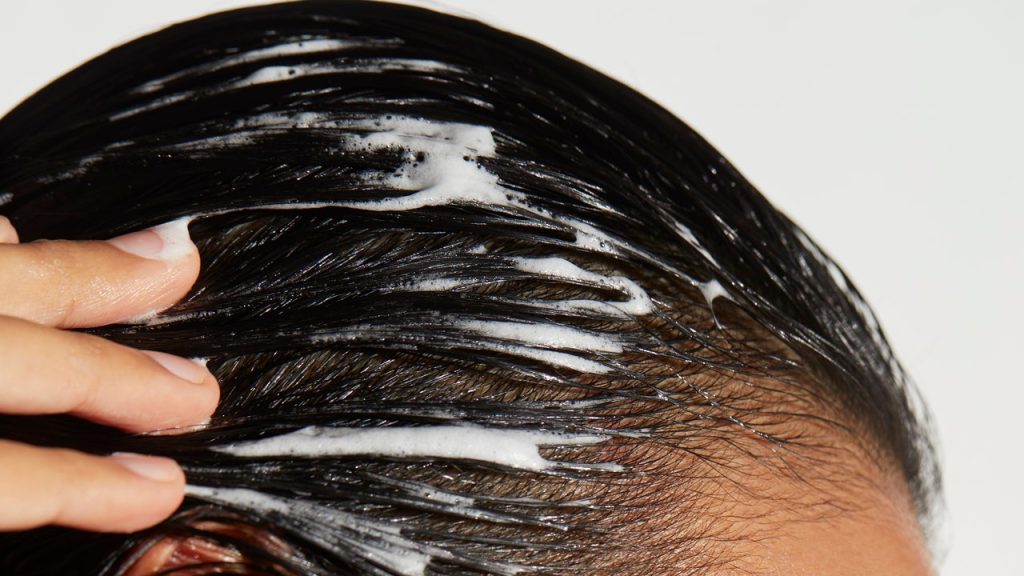Oily hair can be caused by a variety of factors, including going too long between washes, using hair-care products that are too heavy, high humidity levels, sweating, and certain scalp conditions such as sebaceous dermatitis. To combat excess oil and prevent greasy hair, experts recommend using clarifying shampoos that can help avoid oil buildup. These shampoos are often referred to as “purifying” or “detoxifying” and should be sudsy to break up oil. Look for ingredients like surfactants, specifically cocamidopropyl betaine, salicylic acid, ketoconazole, zinc pyrithione, glycolic acid, muds, clays, charcoal, and plant extracts like rosemary and sage.
When choosing a shampoo for oily hair, it is important to look for a formula that is foamy and contains ingredients that can control oil production and remove buildup. Salicylic acid, ketoconazole, zinc pyrithione, glycolic acid, muds, clays, charcoal, and plant extracts like rosemary and sage are all recommended by experts for controlling oil production and absorbing sebum. It is also advisable to wash your hair daily or every other day, depending on your hair type and tolerance. Thinner, finer hair may need to be washed daily, while thicker hair can go longer without washing. Styling products, especially those for volume, can leave behind greasy residue, which may necessitate more frequent washing.
It may be tempting to rely on dry shampoo to extend the time between washes, but experts warn that dry shampoo can add buildup that ultimately makes hair look greasier in the long run. Product buildup can also inhibit healthy hair growth, making consistent cleansing essential. Washing your hair daily can actually help control oil production by preventing the scalp from overproducing oil. By committing to a daily wash, you can maintain healthy hair and prevent excess oil production. Overall, choosing the right shampoo for oily hair and establishing a regular washing routine can help keep your hair looking clean and healthy.
In addition to using the right shampoo and establishing a regular washing routine, it is also important to consider other factors that may contribute to oily hair, such as diet, hormonal changes, and genetics. Maintaining a healthy diet rich in nutrients like vitamins B and E can help keep hair healthy and prevent excess oil production. Hormonal changes, such as those during puberty or pregnancy, can also affect oil production in the scalp. Genetics may play a role in determining how oily your hair is, so it is important to consider these factors when managing oily hair.
Consulting with a dermatologist or hair care expert can help you determine the best course of action for managing oily hair. They can recommend specific products or treatments tailored to your hair type and individual needs. By taking a proactive approach to caring for your hair and scalp, you can effectively combat excess oil and keep your hair looking clean and healthy. Remember to wash your hair regularly, choose the right shampoo for oily hair, and address any underlying factors that may contribute to greasy hair. With proper care and maintenance, you can achieve a balanced, healthy scalp and hair.


